All Stories
-
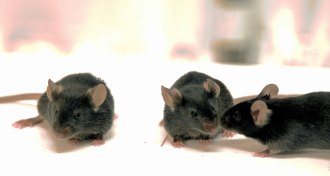 Neuroscience
NeuroscienceMice smell, share each other’s pain
Pain can jump from one mouse to another, presumably through chemicals detected by the nose.
-
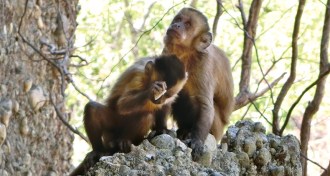 Archaeology
ArchaeologyWild monkeys throw curve at stone-tool making’s origins
Monkeys that make sharp-edged stones raise questions about evolution of stone tool production.
By Bruce Bower -
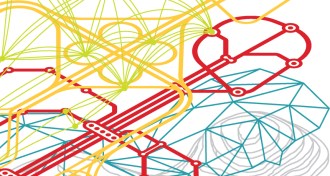 Genetics
GeneticsBig biological datasets map life’s networks
Expanding from genomics to multi-omics means stretching data capacity, but it may lead to a future of early diagnosis, personalized medicine and hardy crops.
-
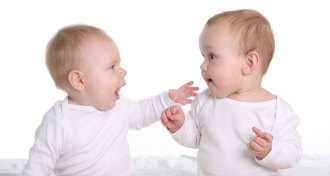 Humans
HumansTom Wolfe’s denial of language evolution stumbles over his own words
Tom Wolfe’s book denies that language evolved and attacks Darwin and Chomsky with smugness lacking substance.
-
 Tech
TechHow to read a book without opening it
New technique allows scientists to read the pages of an ancient text without opening the book.
-
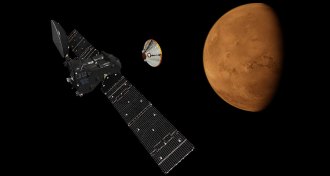 Planetary Science
Planetary ScienceExoMars mission set to arrive at Red Planet on October 19
The European ExoMars mission is about to arrive at the Red Planet, dropping a lander on the surface and putting a spacecraft into orbit.
-
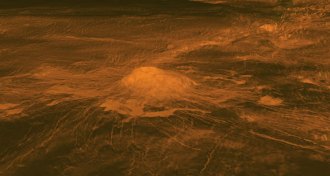 Planetary Science
Planetary ScienceLava may be flowing from Venus volcano
Lava flows might explain a hot spot seen in data from Venus Express spacecraft.
-
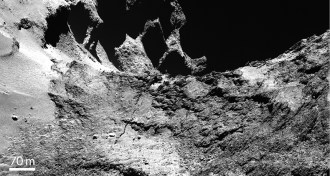 Planetary Science
Planetary ScienceComet 67P cracking under pressure
Cracks developing on comet 67P are signs of stress building in the neck of the comet that could lead to its two ends snapping apart.
-
 Genetics
Genetics‘Three-parent babies’ explained
Several in vitro techniques can produce babies with three biological parents.
-
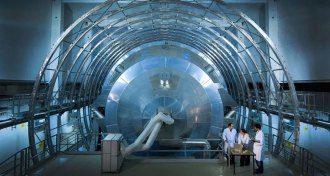 Particle Physics
Particle PhysicsKATRIN experiment readies for quest to find neutrino’s mass
The Karlsruhe Tritium Neutrino experiment, or KATRIN, has begun taking test data in its effort to measure the mass of neutrinos.
-
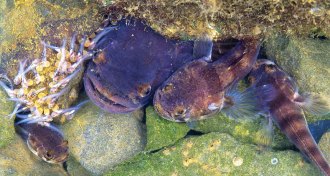 Animals
AnimalsMelatonin makes midshipman fish sing
Melatonin lets people sleep but starts male midshipman fish melodiously humming their hearts out.
By Susan Milius -
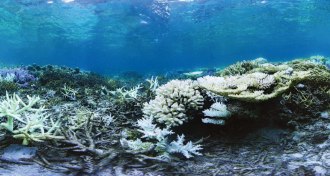 Oceans
OceansReef rehab could help threatened corals make a comeback
Reefs are under threat from rising ocean temperatures. Directed spawning, microfragmenting and selective breeding may help.